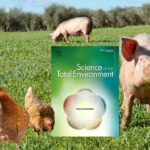
Foodstuffs containing E171 on the European market: it’s over!
It’s official: as of today, foodstuffs containing E171 can no longer be placed on the European market. Those which had been previously distributed will be able to remain on the market until their date of minimum durability or their use-by-date.
The last step in a process to ban E171 in food in Europe
This deadline is the final regulatory step in the process of banning E171 in Europe. It was provided for in the European regulation 2022/63 of January 14, 2022 banning the food additive titanium dioxide (E171), which came into force on February 8, 2022. As a reminder, the annexes of the regulation have been modified following the reversal of the position of the European Food Safety Agency (EFSA) in 2021 and the publication of a notice concluding that this additive can no longer be considered “safe”, due to potential genotoxic effects (DNA damage).
As of 2025, this colorant could also be banned in medicines.
In France, recalls of products containing E171
In France, food products containing titanium dioxide have not been authorized since January 1, 2020. French authorities continue to be vigilant about the marketing of these products: the DGCCRF has again issued, in March and July 2022, several product recalls for those containing E171, published on the site of RappelConso.
Despite this European vigilance, E171 is still authorized in the USA… not for long?
This European vigilance raises questions on the other side of the Atlantic. Indeed, in the United States, titanium dioxide as a food additive is still authorized by the Food and Drug Administration (FDA). In July, a consumer filed a complaint (intended to be considered a class action) in the federal court for the Northern District of California against the company Mars, which continues to market Skittles candies containing E1711Thames v Mars Inc, U.S. District Court, Northern District of California, No. 22-04145even though the company had committed to remove it from its products in 2016 (and has removed it from M&M’s in France). This ongoing action was reported by several media2Guardian, The Washington Post, Los Angeles Times, the New York Times, etc.. The fact that Europe evaluated and banned E171 poses real health questions for the authorities that continue to allow this additive in food.
Other news on the topic
Upcoming Nano Agenda

- Webconference for analysis laboratories, plant fertilizer manufacturers and distributors, public authorities…
- Moderated by David Krupka, nanotechnologies development manager at AFNOR Normalisation and Emilie Langlois-Bertrand, nantechnologies standardization project manager.
- In partnership with Armand Masion (CEREGE) and Patrice Charpentier (ANSES).
- This exchange will also be an opportunity to explore the creation of a national platform to identify standardization needs.
- Website: https://www.afnor.org/evenements/qualite/nanotechnologies-agriculture-cadre-pratique-responsable

- International conference on metallic nano-objects for experts working in the interdisciplinary field of metallic nanoparticles, with a particular emphasis on nanoparticle synthesis and characterization, plasmonics, optics and photonics, catalysis, biomedicine, electronics, and nanoparticle recycling
- Organizers / Partners: CNRS, Bordeaux University, Bordeaux INP, ICMCB, CRPP, CBMN, ISM
- Website: https://mno2026.sciencesconf.org
- Two days of information, discoveries and testimonials for occupational health and safety professionals, experts and enthusiasts to discuss chemical risk prevention in the workplace.
- Organizers: Association TOXILIST
- Website: https://toxidays.fr/
Notes and references
- 1Thames v Mars Inc, U.S. District Court, Northern District of California, No. 22-04145
- 2






